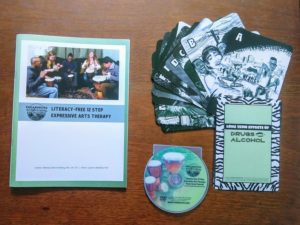Literacy-Free 12 Step Expressive Arts Therapy
ABOUT THE CURRICULUM
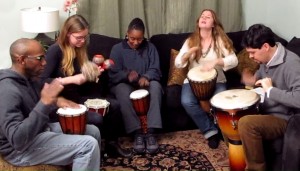 The “Literacy-Free 12 Step Expressive Arts Therapy” curriculum is a literacy-free group counseling manual that uses cognitive behavioral (CBT) and rational emotive behavior therapy (REBT) techniques. It guides participants through the 12 Step principles for overcoming addiction as well as related psychoeducational topics. It contains 10 lessons using art, dance, game, horticulture, drama, handicraft and music activities. It is authored by Melissa Davis-Stuebing, MA, CAC-AD and edited by Dr. Lauren Littlefield.
The “Literacy-Free 12 Step Expressive Arts Therapy” curriculum is a literacy-free group counseling manual that uses cognitive behavioral (CBT) and rational emotive behavior therapy (REBT) techniques. It guides participants through the 12 Step principles for overcoming addiction as well as related psychoeducational topics. It contains 10 lessons using art, dance, game, horticulture, drama, handicraft and music activities. It is authored by Melissa Davis-Stuebing, MA, CAC-AD and edited by Dr. Lauren Littlefield.
It was specifically developed for hard-to-reach substance dependent populations who might slip through the cracks of standard therapeutic services – such as illiterate and learning disabled populations, as well as participants with social anxiety, difficulty of self expression, trauma and co-occurring disorders. This curriculum requires just 1 facilitator. It goes through each of the 12 steps, forming recovery support groups at the completion of the curriculum so change can be sustainable and community owned. The 12 steps are a set of guiding principles for the person seeking recovery from addiction emphasizing peer support, behavioral change, spiritual wholeness and the importance of community.
It is available now in English language/ US culture and Zambian culture versions. Spanish language / Latin American culture version is being field-tested prior to availability. It is currently being translated into Nyanja (Zambia). The Kenya version is currently part of a clinical study until 2024. Download pamphlet here.
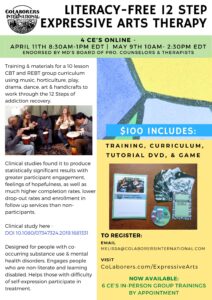 REGISTER: Maryland & ONLINE Trainings / Continuing Education
REGISTER: Maryland & ONLINE Trainings / Continuing Education
Training is free with purchase of curriculum materials. Online trainings are endorsed by MD Board of Professional Counselors & Therapists for 4 Activity A Continuing Education units. Upcoming online trainings are Thurs April 11th 8:30am-1pm EDT OR Thurs May 9th 10:00am- 2:30pm EDT. In-person trainings are available for groups by request in Maryland for 6 Activity A continuing education units. Information flier can be downloaded here!
COST
Each leader pack consists of a Leader Curriculum Guide, Drum Circle Instructional DVD & Card Game. Because it is literacy-free, there are no workbooks needed for participants. The cost is $100 USD per leader pack. Bulk discounts are available for orders of 10 or more packs. Training is FREE with purchase. All international orders must contact Melissa@CoLaborersInternational.com in advance of payment for shipping estimate.
CHECKS: Checks can be made out to CoLaborers International (EIN:64-0960198) with “Literacy-Free 12 Step Based Expressive Arts Curriculum” on the memo and mailed to PO Box 959 Chestertown MD 21620.
CREDIT CARD: Purchase online here:
CLINICAL RESEARCH
2023-2024 KENYA STUDY
A clinical study of the Kenya version of the curriculum is currently ongoing 2023-2024 as part of a CDC program evaluation at Eastern Deanery AIDS Relief Program in Nairobi for substance-using people living with HIV. This followed training 54 of their clinicians in the curriculum. Check back for more details!
2015-2016 U.S. STUDY
A clinical study of the US version of the curriculum is published here – https://www.tandfonline.com/doi/full/10.1080/07347324.2019.1681331
Citation: (2019) Literacy-Free 12 Step Expressive Arts Curriculum Enhances Engagement and Treatment Outcomes for Dually Diagnosed Substance Use and Mental Health Disorders, Alcoholism Treatment Quarterly, DOI: 10.1080/07347324.2019.1681331
This study was also presented at the 2017 Eastern Psychological Association’s Annual Conference in Boston. Download official program here.
2018-2019 ZAMBIA STUDY
A clinical study of the Zambia version of the curriculum is published here – https://doi.org/10.1016/j.abrep.2022.100424
Citation: Lorenz, H. S.*, Stuebing, M. D.*, Nambeye, C., Lungu, G., & Littlefield, L. M. (2022). Substance use treatment using cultural arts and 12 steps: Curriculum training and community-led implementation in Zambia. In Addictive Behaviors Reports (Vol. 15, p. 100424). Elsevier BV. https://doi.org/10.1016/j.abrep.2022.100424
*joint first authors
This clinical study was presented at the 2020 Eastern Psychological Association’s Annual Conference. Download the official program here.
Citation: Stuebing, M.D., Lorenz, H. & Littlefield, L.M. (2020, March). Literacy-Free 12 Step Expressive Arts Decreases Stigma and Substance Use in Zambia. Poster presented at the Annual Meeting of the Eastern Psychological Association: Boston, MA.
2015-2018 ZAMBIA FIELD-TESTING
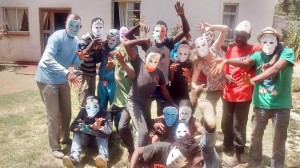
This curriculum was originally developed for homeless youth in Zambia, Centtral Africa and was field-tested in 3 studies by Brittany Hynson and Hjordis Lorenz , including a longitudinal study by Allyson Grace Arnold in 2016 at Chisomo Centers.
The study was presented at the 2018 Eastern Psychological Association’s Annual Conference in Philadelphia. Download the official program here.
Citation: Stuebing, M.D., Arnold, A. & Littlefield, L.M. (2018, March). Hope to Change: Expressive Arts in Zambia with Substance Using Homeless Youth. Poster presented at the Annual Meeting of the Eastern Psychological Association: Philadelphia, PA.
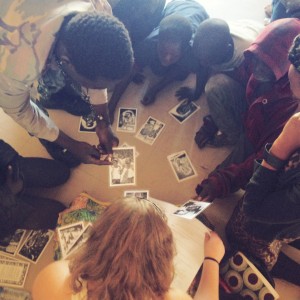
Missionary Mike Peck, CSC-AD continued running these groups as a practitioner in Zambia after field-testing ended.
Results were shared with the Ministry of Health in Zambia, and we received their endorsement for a large training of over 40 organizations across the country. After this, we followed trained organizations as they delivered it to their communities and published this study.
Why Literacy-Free?
Substance use counseling materials were not widely available in Zambia, let alone materials that are culturally appropriate, and did not require literacy. The literacy rate in Zambia is 64% among the youth population; which is lower than the average youth literacy rate in other lower middle income countries (Education Policy and Data Center, 2014).
Cultural Appropriateness
Counselor Feedback
“Each part of the curriculum was so unique. It was amazing to look at something I am already familiar with from a new perspective.” – Chris Osment, Somerset County Health Dept.
“My favorite part was the hands on working of the program and the open sharing within the group.” – Carol Strootman, LMSW, For All Seasons, Inc.
“The A. F. Whitsitt Center started incorporating the “Literacy Free 12 Step Expressive Arts Therapy” curriculum into our regular activities schedule several years ago. We consistently get good feedback from the patients and the trainers enjoy leading the sessions.” – Andrew Pons, CAC-AD, clinical director. A.F. Whitsitt Center
“My favorite part of the training was it’s experiential nature and enthusiasm. It expanded my perception regarding how reaching difficult clients can be better served by utilizing outside of the normal box interventions.” Michael Anderton CAC-AD, Somerset County Health Department
“The curriculum is beneficial because it teaches those with all the different types of learning styles. I always receive great feedback from participants. They appreciate the change of pace from the lecture format and enjoy being able to express themselves using the different types of media.” – Julia Garris, A.F. Whitsitt Center
“Many patients are anxiety ridden and typical verbal skills is a challenge. Melissa’s curriculum allows patients to share their feelings and stabilize in a more natural and comfortable manner.” – Alice Barkley, LCSW-C, Kent County Crisis Beds
Client Feedback
“This group made me feel committed to my recovery. I liked the artwork and how they explained it.”
– Alcohol Dependent, Schizophrenia
“This group made me realize that every one has a past and needs help.”
– Opiate Dependent
“Life is what you make it! Fresh start! I love the group! This group was very therapeutic and I loved it.”
– Alcohol Dependent, Anxiety Disorder NOS, Depression Disorder NOS
“This class lifted a weight off my chest. Freeing.”
– BiPolar I, PTSD and Alcohol, Marijuana, Cocaine and Opiate Dependent
” I realized I do have an artistic side. I am very grateful to have participated.”
– Alcohol and Marijuana Dependent
“This is one of my favorite groups! Everyone was participating, which rarely happens in other types of treatment.”
– Benzo, Mariuana, Cocaine, Opiate Dependent with BiPolar I, Anxiety Disorder with Panic & PTSD
“I thought group was interesting. It kept my attention the entire group.”
– BiPolar I, Opiate Dependent
“I realized I do have good qualities and values.”
-Alcohol, Marijuana, Cocaine and Opiate Dependent
“I really like the art therapy groups that I have attended here. It gets me and us to think outside the box. Thank you for having this expressive arts therapy as part of my recovery!”
– Alcohol and Marijuana Dependent
“This group was excellent. It allowed me to take a good look at myself and what I need to do in the future.”
– Alcohol, Marijuana, Cocaine and Opiate Dependent
“I love the art therapy classes. A different way to look inside. A great way to express what is inside.”
– Alcohol and Marijuana Dependent
“I was able to identify my defects and strengths and the things I need to work on for a successful recovery. This was enjoyable and helpful!”
– ADHD, BiPolar, Anxiety Disorder, Alcohol, Opiate and Cocaine Dependent
“I learned I can become the woman that I want to be when I forgive myself and move forward.”
– BiPolar I, PTSD and Alcohol, Marijuana, Cocaine and Opiate Dependent
“I learned I can grow after all my wrong doings!”
– Opiate Dependent
“I learned how to see myself grow. I can use various things about myself to see myself in a positive manner. This group was very informative and prepared in an A+ way!”
– Cocaine and Marijuana Dependent
“This group was helpful. It breaks the monotony of the day.”
– Dysthymic Disorder and Opiates, Cocaine and Benzo Dependent
“The art therapy classes were absolutely my favorite classes during my stay here!”
– BiPolar I, PTSD and Alcohol, Marijuana, Cocaine and Opiate Dependent
“I really loved this class. It was very, very helpful to my recovery!”
– BiPolar I with psychotic features and Opiate Dependent
“This group was great and made me feel forgiveness! I feel like I got something out of it and also I learned more about myself.”
– BiPolar I, PTSD and Cocaine, Alcohol and Marijuana Dependent
“I liked this group! Hope for the future! My favorite group since I’ve been here! Kept my attention.”
– Opiate Dependent
